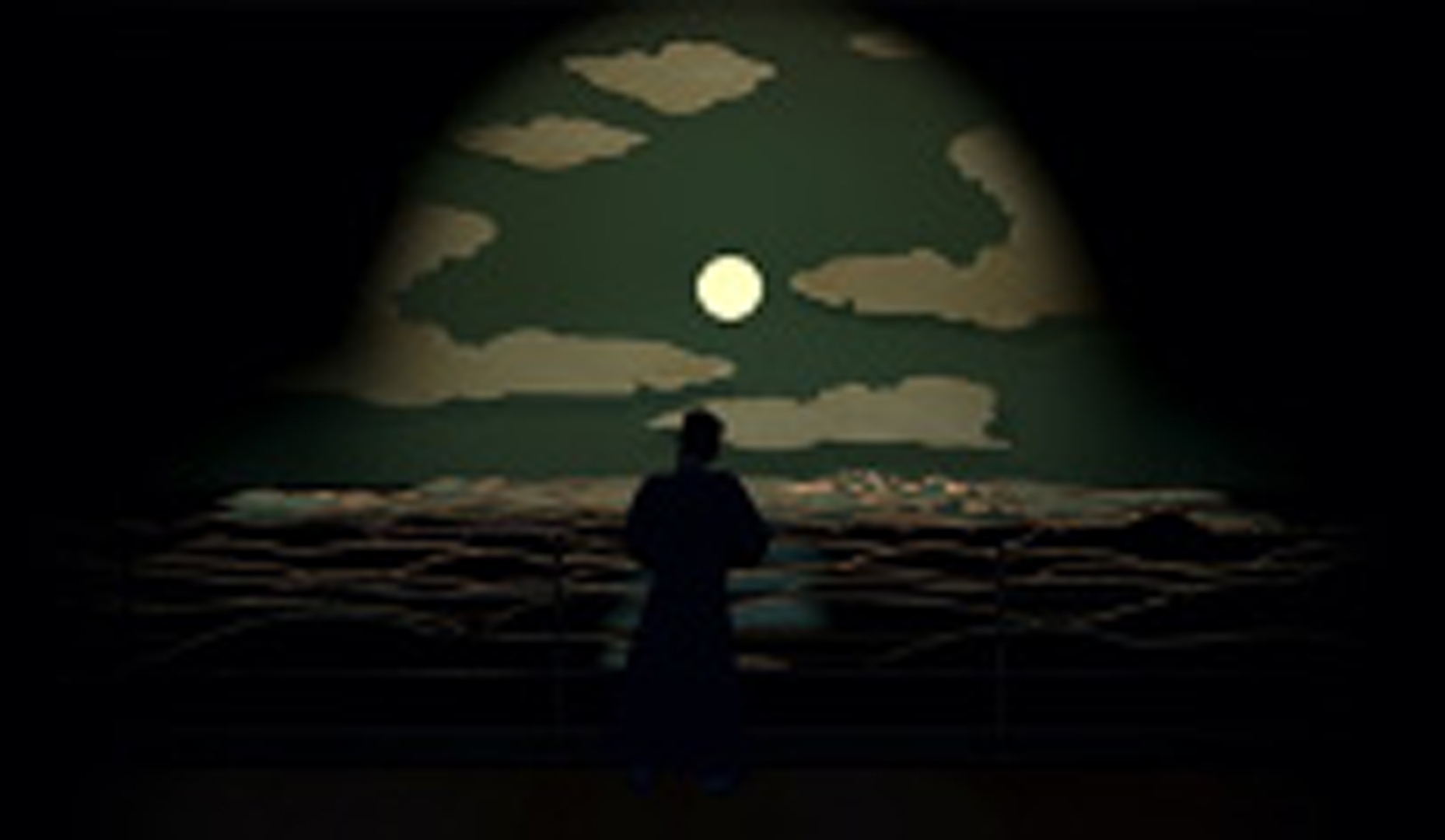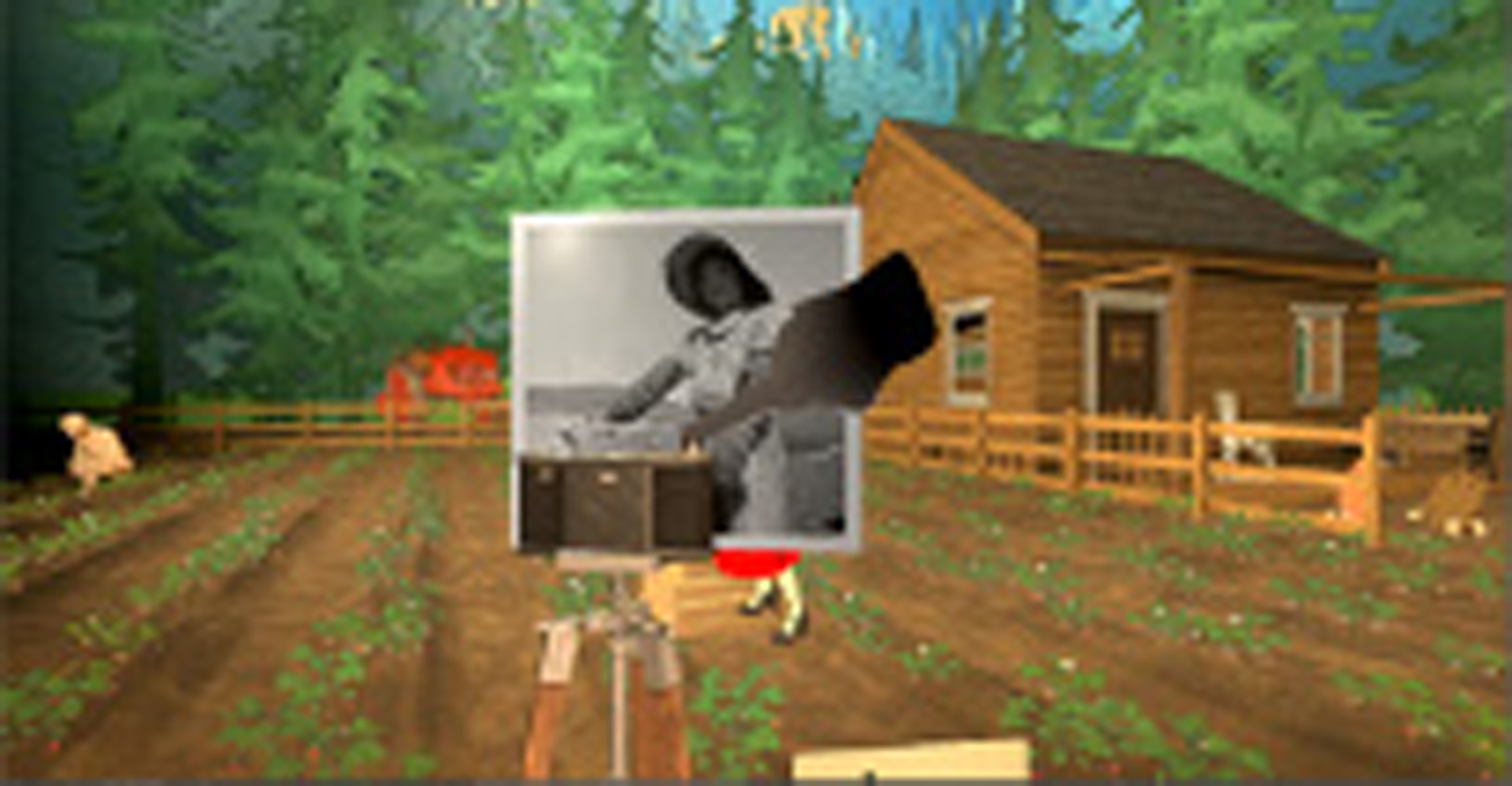“The Book of Distance: Personal Storytelling in VR” by Oppenheim and Okita
Notice: Pod Template PHP code has been deprecated, please use WP Templates instead of embedding PHP. has been deprecated since Pods version 2.3 with no alternative available. in /data/siggraph/websites/history/wp-content/plugins/pods/includes/general.php on line 518
Conference:
- SIGGRAPH 2020
-
More from SIGGRAPH 2020:
Notice: Array to string conversion in /data/siggraph/websites/history/wp-content/plugins/siggraph-archive-plugin/src/next_previous/source.php on line 345

Notice: Array to string conversion in /data/siggraph/websites/history/wp-content/plugins/siggraph-archive-plugin/src/next_previous/source.php on line 345

Type(s):
Entry Number: 05
Title:
- The Book of Distance: Personal Storytelling in VR
Program Title:
- Immersive Entertainment and Storytelling
Presenter(s):
Description:
The Book of Distance investigates the language of personal storytelling in virtual reality (VR), borrowing from interactive narrative practice of the past few decades, the language of performative installation, Japanese theatre and creative non-fiction filmmaking. Beyond a simple retelling of historic events—the internment of Japanese Canadians by their own government, a history shared with the U.S.—the work uses a linear storytelling model with local user agency and an embodied central protagonist who occasionally breaks the “fourth wall” to engage with the user. This paper introduces the creative foundation for the storytelling used in The Book of Distance, an approximately 25-minute single-user, room-scale interactive VR experience intended for general audiences, including those who have not experienced VR before.
References:
- Sandra Gaudenzi. 2013. The Living Documentary: from representing reality to co-creating reality in digital interactive documentary. Doctoral thesis, Goldsmiths, University of London. [Thesis] : Goldsmiths Research Online. http://research.gold.ac.uk/7997/
- Jichen Zhu, Kenneth Ingraham, J. Michael Moshell, and Santiago Ontañón. 2011. Towards a computational model of character status in interactive storytelling. In Proceedings of the 8th ACM conference on Creativity and cognition (C&C ’11). Association for Computing Machinery, New York, NY, USA, 409–410. DOI:https://doi.org/10.1145/2069618.2069720
- Richard Lachman. 2008. Diamond road online: a user-guided documentary experience. In ACM SIGGRAPH 2008 new tech demos (SIGGRAPH ’08). Association for Computing Machinery, New York, NY, USA, Article 12, 1. DOI:https://doi.org/10.1145/1401615.1401627
- Janet H. Murray. 1997. Hamlet on the Holodeck. Simon and Schuster.
- Kent Bye. 2016. Voices of VR Podcast #292. The Four Different Types of Stories in VR. https://voicesofvr.com/292-the-four-different-types-of-stories-in-vr/
- Kent Bye. 2020. Voices of VR Podcast. #895 Sundance: ‘Book of Distance’ has Breakthrough Immersive Storytelling Innovations https://voicesofvr.com/895-sundance-book-of-distance-has-breakthrough-immersive-storytelling-innovations/
- Anita Lee and Anna Serrano. 2007. Late Fragment. National Film Board of Canada / Canadian Film Centre Media Lab. http://onf-nfb.gc.ca/en/our-collection/?idfilm=54801
Additional Images:







